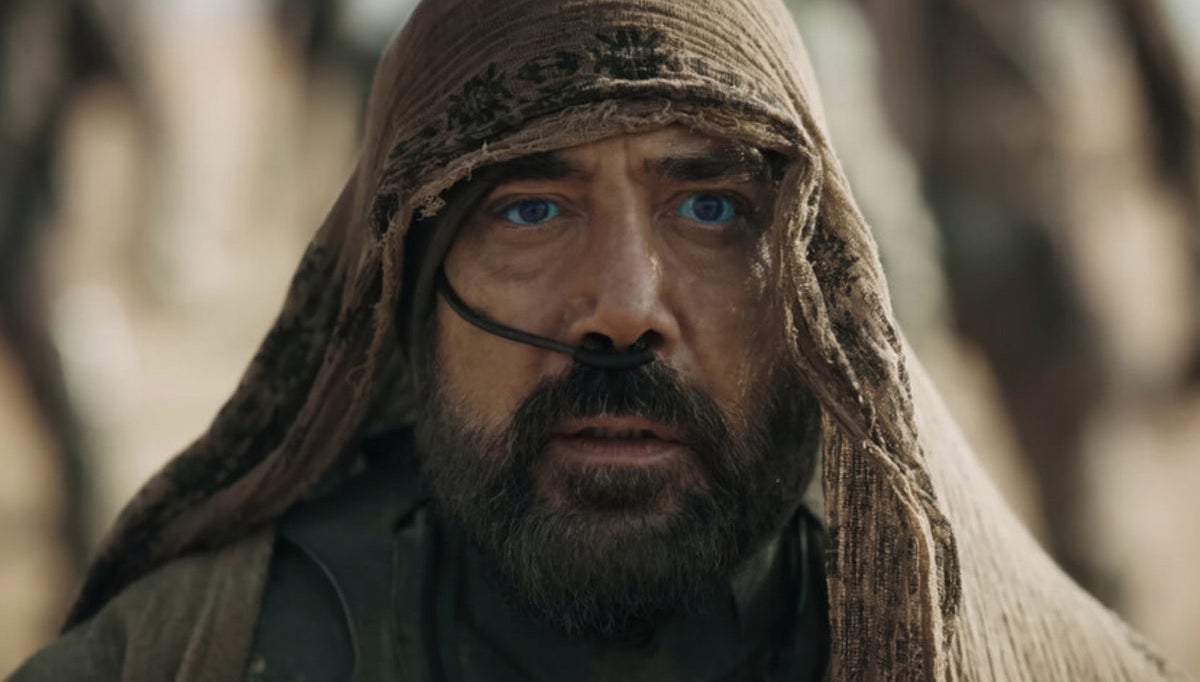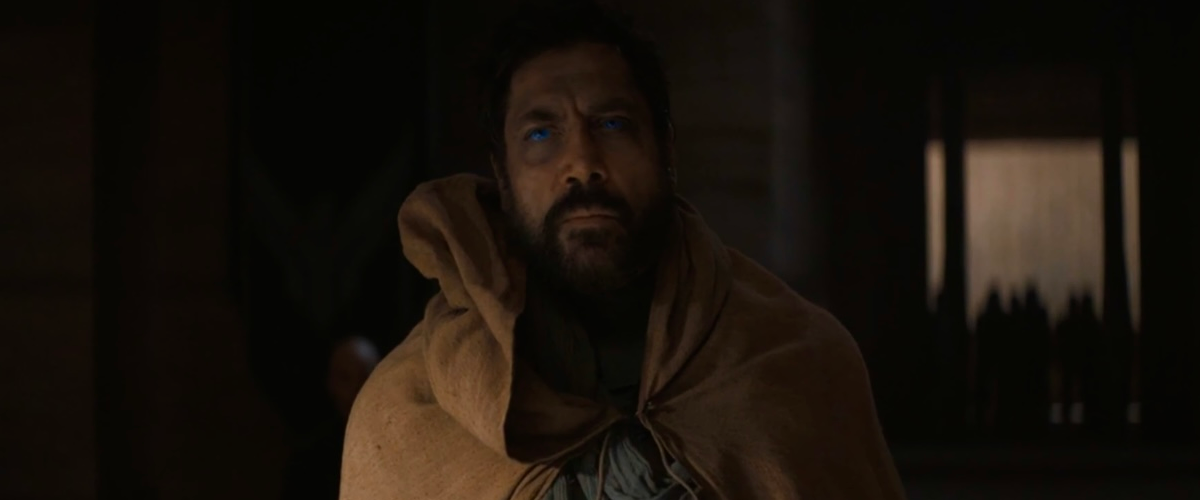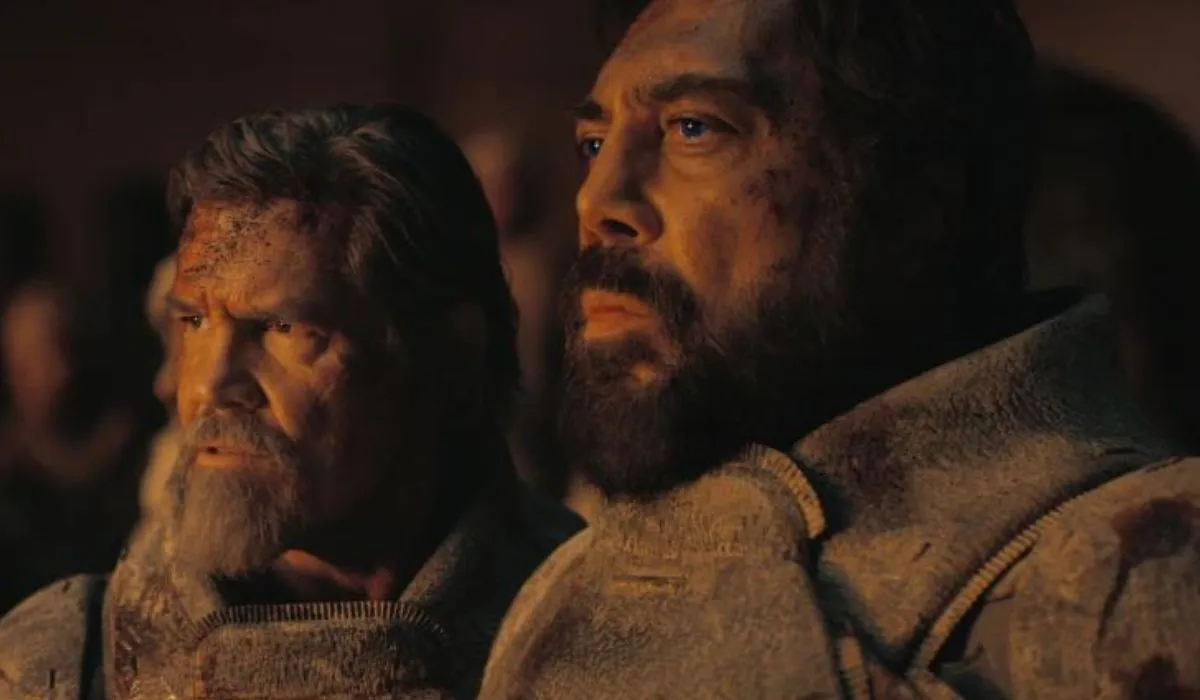One of ‘Dune: Part Two’s Most Tragic Characters Has Already Become a Meme
Excellent comedic timing that turns terrible once you scratch the surface.

Dune: Part Two, which is currently in cinemas worldwide and holding the Internet in a massive and very-deserved chokehold, gave us the chance to get to know characters that were only barely introduced in the first movie—like the Fremen members of Sietch Tabr, who appeared in Dune: Part One for a handful of final scenes.
It’s especially true for Chani, played by Zendaya, who becomes the emotional heart of this movie as well as the lens through which we see Timothée Chalamet’s Paul Atreides rising to power, and for Stilgar, the leader of Sietch Tabr, played by Javier Bardem.
The two characters are actually on opposite sides when it comes to the faith that the Bene Gesserit of the Missionaria Protectiva have instilled in the Fremen people. Chani doesn’t believe in it in the slightest and is firmly convinced that the Fremen will save themselves rather than be saved by a messiah. Stilgar is instead a deep believer in the figure of the Lisan al-Gaib, “The Voice from the Outer World,” and he’s pretty much immediately convinced that Paul is indeed the messiah the Fremen have been waiting for.

Plot discussion/some spoilers for Dune: Part Two ahead
Throughout the movie, his faith in Paul grows and grows even when Paul himself is still wary of fully taking control of the Lisan al-Gaib mythos. There are several shots of him looking at Paul in the way you’d imagine someone who has been expecting a messiah for their whole life would look at the person they believe to be that messiah, and he’s often talking with other members of the Sketch about everything that Paul does is “as written” and proves that he’s the Lisan al-Gaib.
And maybe that’s Bardem’s particular comedic timing—which I think it is because his lines didn’t hit as hard in the Italian dub of the movie that I saw together with the original English version—but most of Stilgar’s scenes have already ascended to meme status all throughout the Internet. That’s particularly true of the closeup of Stilgar’s face when he sees Paul successfully riding a sandworm for the first time, which has been making the rounds around social media.
I mean, I get it. It is really fun, again, especially thanks to Bardem’s performance and of course, the inventiveness of the Internet, which makes everything better. But there’s also something terribly dark and tragic behind Stilgar’s continued declarations of “Lisan al-Gaib” and “as it’s written”—and I think there’s one particular line that summarises it all and truly shines a light on it for everyone to see.
It’s right after the Harkonnen bombings of most Sietches in the North of Arrakis, when the Fremen of Sietch Tabr are deciding whether or not they should travel South. By this point, most of the Fedaykin warriors believe that Paul—or Muad’Dib—is the Lisan al-Gaib and that he should go South to talk to the tribes there.
Stilgar, however, warns that only leaders can speak in the South and he offers his life to Paul—so that he can reach the South as the leader of Sietch Tabr. He’s wounded, so he says that he wouldn’t be a particularly dangerous opponent for Paul. Paul, of course, refuses and a screaming match ensues, at the end of which Stilgar declares that he doesn’t care what Paul believes because he believes.
That’s when you see that Stilgar’s faith has collapsed into fundamentalism and that fundamentalism has consumed who he is as a person because that’s one of the dangers that comes with it. He’s no longer Stilgar, a person with unique character and personality, and he no longer sees Paul as Paul either—he’s simply a follower of the Lisan al-Gaib ready to do whatever his messiah would command of him.
It’s a perfect visual transposition of a line that can be found towards the end of the first Dune book: “In that instant, Paul saw how Stilgar had been transformed from the Fremen naib to a creature of the Lisan al-Gaib, a receptacle for awe and obedience. It was a lessening of the man, and Paul felt the ghost-wind of the jihad in it. I have seen a friend become a worshiper, he thought”.

It’s a harrowing realization for both Paul—anticipating the themes of Dune Messiah, as the entirety of Dune: Part Two does—and the audience, and one that comes into full fruition in the very last scenes of the movie. After Paul defeats Feyd-Rautha in a duel and gains the Emperor’s submission, he turns his mind towards the Great Houses who have arrived on Arrakis and refuse to recognize his authority.
That’s when we last see Stilgar, gleefully guiding his fellow Fremen fighters on the starships that will lead them to clash against the Great Houses and then to the holy war across the galaxy in Muad’Dib’s name.
(featured image: Warner Bros)
Have a tip we should know? [email protected]